- 🗼 Lighthouse — Newsletter by Future Works
- Posts
- Research: The Winning CRM for the Age of AI
Research: The Winning CRM for the Age of AI
Our LEAP Team looked at 11 CRMS to see which one will deliver in the AI era.
In our ongoing commitment to staying at the forefront of business technology, our team conducted an extensive research project to identify which CRM tools are set to dominate in the Age of AI. This comprehensive analysis aims to guide businesses in choosing a CRM system that not only meets current needs but is also well-positioned for the AI-driven future.
Methodology
Our LEAP team focused on sales operations improvement and spent three months analyzing the CRM landscape. We started with an initial list of 19 CRM platforms and narrowed it down to 11 based on our rigorous evaluation criteria.
Our process included:
Analyzing current CRM market trends and emerging technologies
Interviewing over 30 CRM industry leaders and power users
Conducting hands-on testing of the platforms
Collaborating with AI specialists to project future developments
Key evaluation criteria included:
Communication logging and contact management
User experience and interface design
API robustness and integration capabilities
AI functionality and smart features
Scalability and ease of use for sales teams
Mobile experience
Pricing
It’s important to note that for our evaluation, integrations were given significant weight. The ability to connect with underlying “AI Mechanisms” is crucial for future-proofing CRM systems. Additionally, we believe that smooth integration with “Source of Truth” platforms like Notion is essential for modern organizations, although this may not be a universal requirement.
Here’s a peek at our raw database, where we ranked every tool based on the methodology above:

Now, let’s dive into our ranking of the top 11 CRM platforms, listed in ascending order of their overall scores:
11. Thryv
Overall Score: 1.73/5
Thryv offers simplified contact and client management, making it suitable for small businesses new to CRM systems. However, it lacks in advanced features and integrations.
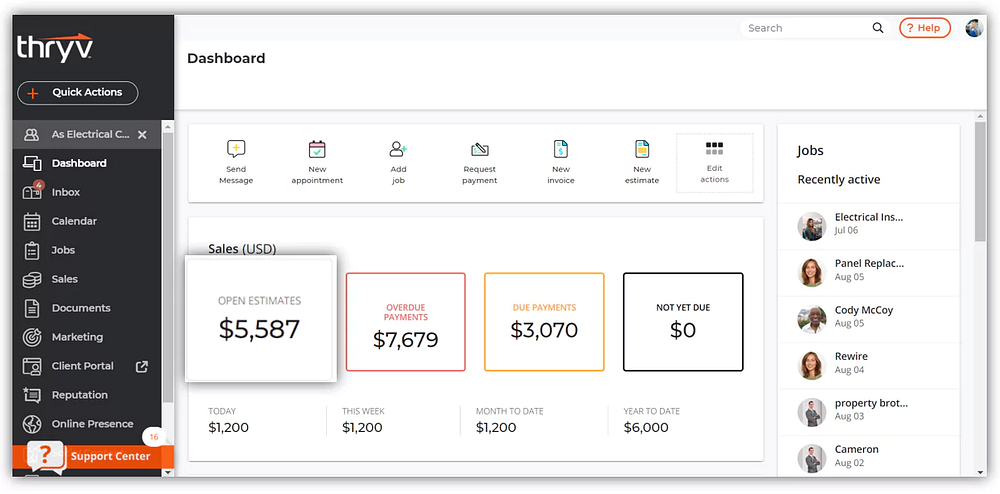
AI Capabilities: Basic AI features focused on automation.
2025 Outlook: Thryv will need to significantly enhance its AI capabilities and integrations to remain competitive in the evolving CRM landscape.
10. ActiveCampaign
Overall Score: 2.4/5
ActiveCampaign shines in email communication and automation, making it a solid choice for businesses prioritizing marketing automation.

AI Capabilities: Limited AI, primarily focused on marketing automation.
2025 Outlook: To stay relevant, ActiveCampaign will need to expand its AI offerings beyond marketing automation and improve its CRM-specific features.
9. GoHighLevel
Overall Score: 2.7/5
GoHighLevel is designed for agencies managing multiple clients, offering strong tools for lead generation and follow-ups.
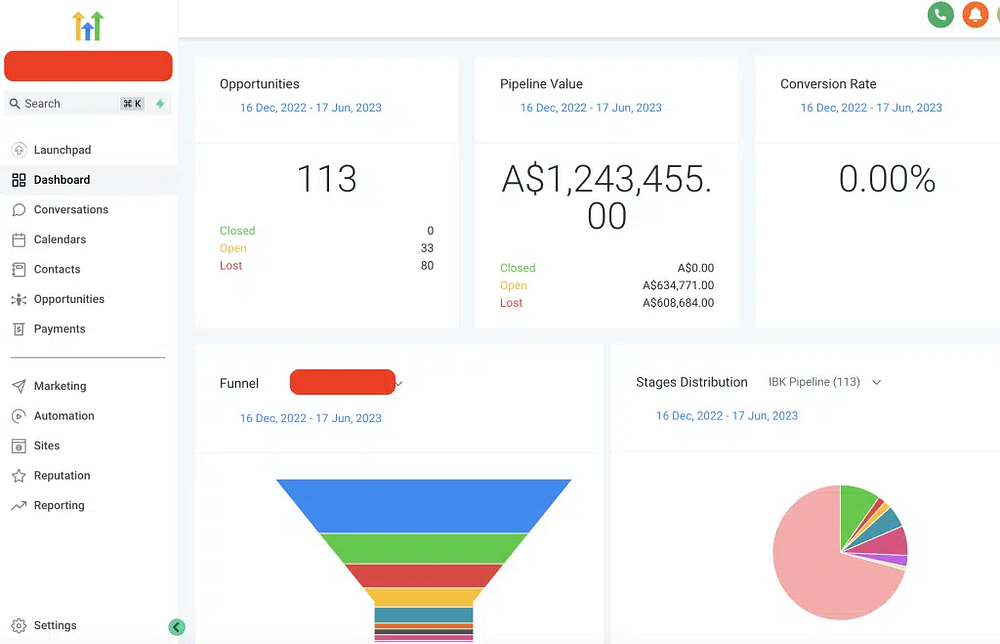
AI Capabilities: High-value AI functionality for messaging, emails, calls, and AI-based workflows.
2025 Outlook: With its focus on agencies and strong AI features, GoHighLevel could carve out a niche in the market if it continues to innovate.
8. Copper
Overall Score: 2.77/5
Copper stands out with its deep integration with Google Workspace, offering a familiar interface for Google users.
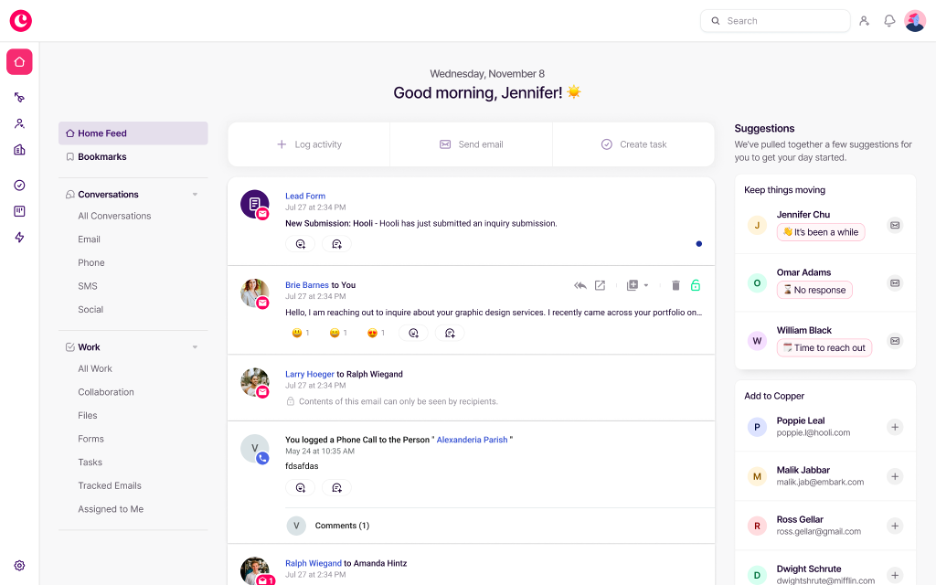
AI Capabilities: AI tools focused on email automation and reminders.
2025 Outlook: Copper’s future success may depend on expanding its AI capabilities beyond its current Google-centric approach.
7. Attio
Overall Score: 2.73/5
Attio is making waves with its modern design and focus on intuitive user experience.
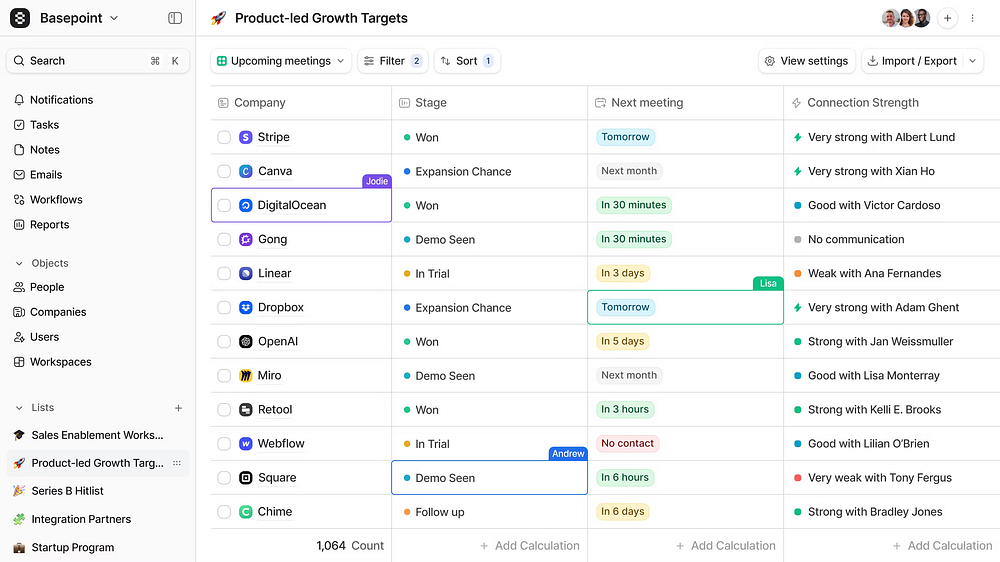
AI Capabilities: Currently focused on contact data enrichment, with room for growth.
2025 Outlook: If Attio can rapidly expand its AI capabilities while maintaining its user-friendly approach, it could be a strong contender in the 2025 CRM race.
6. Odoo
Overall Score: 2.67/5
Odoo offers comprehensive tools with open-source flexibility, making it highly customizable for businesses with specific needs.
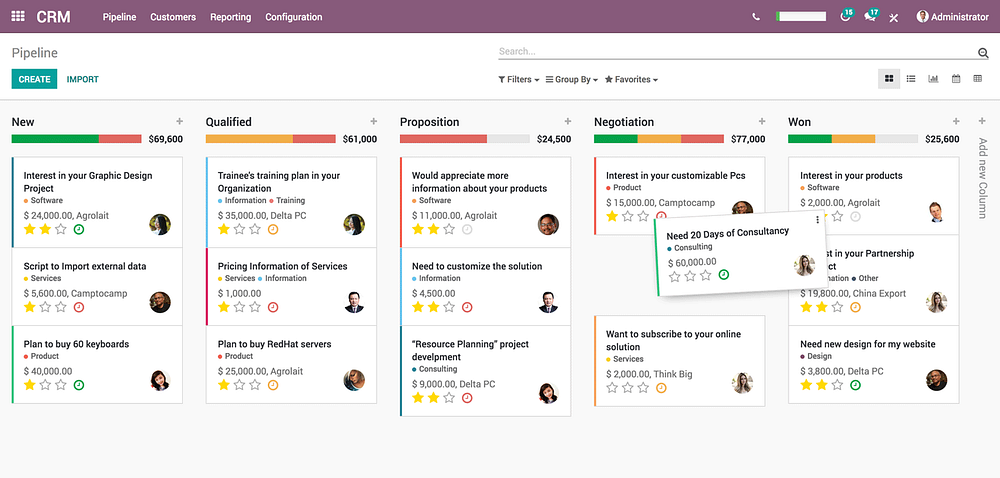
AI Capabilities: Basic AI features, but highly customizable.
2025 Outlook: Odoo’s open-source nature could allow for rapid AI integration, but it will need to provide more out-of-the-box AI solutions to compete with larger players.
5. Pipedrive
Overall Score: 2.93/5
Pipedrive’s activity-based selling focus makes it a favorite among sales teams.

AI Capabilities: AI is focused on workflow automation and deal prediction.
2025 Outlook: Pipedrive’s laser focus on sales processes could see it emerge as a specialist leader, especially if it continues to enhance its AI capabilities for sales optimization.
4. Monday.com CRM
Overall Score: 3/5
Monday.com’s CRM offering is gaining traction, especially among teams already using their project management tools.

AI Capabilities: While current AI features are limited, Monday.com is actively developing in this area.
2025 Outlook: Given its intuitive interface and rapid development cycle, Monday.com could become a major player by 2025 if it continues to invest in AI and CRM-specific features.
3. Salesforce
Overall Score: 3.33/5
Salesforce remains a powerhouse in the CRM world, known for its extensive customization options and robust ecosystem.
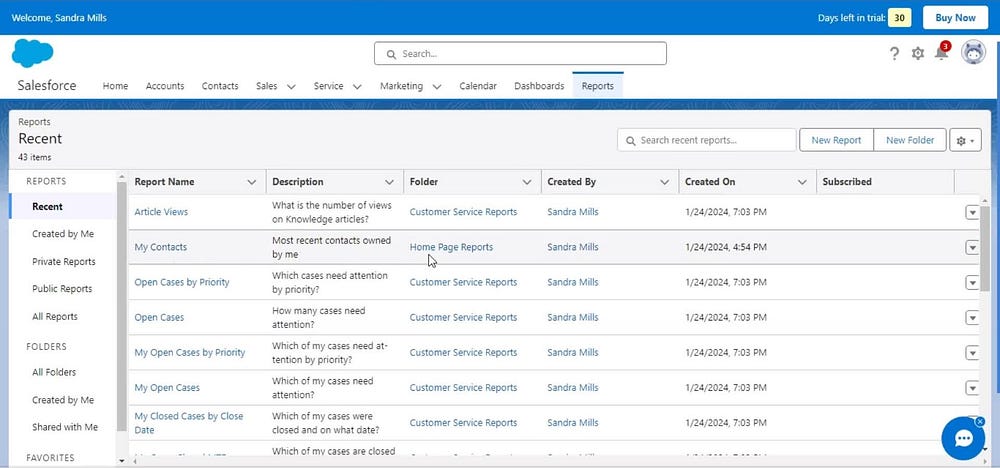
AI Capabilities: Einstein AI includes automated data capture, predictive scoring, recommendation engines, and natural language processing.
2025 Outlook: Salesforce’s strong focus on AI and its vast resources suggest it will continue to be a leader in AI-driven CRM solutions. Recent news indicates that Salesforce is doubling down on AI, with CEO Marc Benioff announcing significant investments in AI research and development.
2. Zoho One
Overall Score: 3.37/5
Zoho One stands out as an “ERP-like” experience, offering a comprehensive suite of tools beyond just CRM functionality.
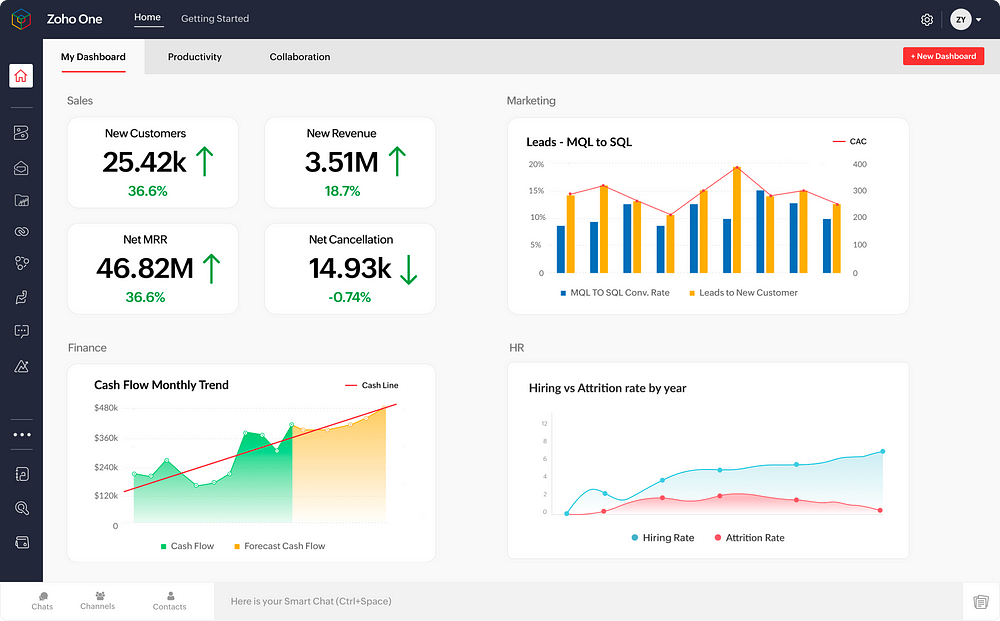
AI Capabilities: Zoho’s Zia AI provides voice commands, sales predictions, data enrichment, and sentiment analysis on emails.
2025 Outlook: With its all-in-one approach, Zoho One is well-positioned to capture market share from businesses looking for integrated solutions. Expect significant improvements in AI-driven insights and automation.
1. HubSpot CRM
Overall Score: 4.1/5
HubSpot takes the top spot with its robust ecosystem and excellent price-to-feature ratio. Its strengths lie in communication logging, contact management, and API integration.
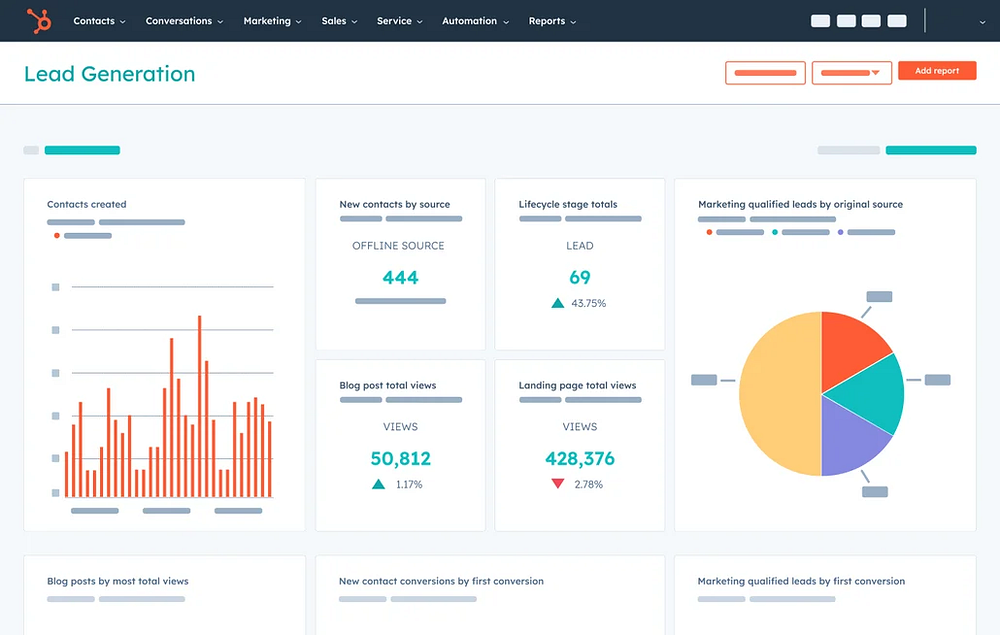
AI Capabilities: HubSpot offers predictive lead scoring, chatbots, and email send-time optimization. While not the most advanced AI suite, it provides solid functionality for most businesses.
2025 Outlook: HubSpot’s commitment to innovation and its strong integration capabilities position it well for future growth. Expect to see more advanced AI features and improved data enrichment tools.
AI trends shaping the future of CRM
As AI continues to evolve, we expect to see several key trends emerge in the CRM space:
Enhanced personalization. AI will enable CRMs to provide increasingly tailored experiences for both sales teams and customers.
Advanced predictive analytics. More sophisticated forecasting and lead-scoring models will help businesses prioritize opportunities more effectively.
Improved natural language processing. AI-powered chatbots and voice assistants will become more prevalent, handling routine customer interactions and internal queries with increased accuracy.
Proactive data enrichment. CRMs will become more autonomous in gathering and updating contact information, significantly reducing manual data entry.
Actionable AI-driven insights. Systems will not just present data but will proactively offer context-aware recommendations and insights.
In summary
The CRM landscape is undergoing a significant transformation as we approach 2025, with AI capabilities becoming a key differentiator. Our analysis reveals a surprising trend: the most well-known names in the industry also scored the highest, indicating high barriers to entry for new, smaller players, even those with fresh approaches like GoHighLevel or Attio.
The race to incorporate AI is intensifying among the strong players.
Salesforce, for instance, recently announced a major push into AI, with CEO Marc Benioff stating, “AI is the new electricity.” Similarly, HubSpot has been steadily enhancing its AI capabilities, while Zoho continues to expand its Zia AI assistant.
While all major CRM providers are investing heavily in AI, our rating suggests that HubSpot is likely to emerge as the frontrunner. Its combination of robust features, strong integration capabilities, and commitment to AI innovation puts it in a prime position to lead the market.
However, the CRM landscape remains dynamic, and we’ll continue to monitor these developments closely. As AI becomes increasingly central to CRM functionality, businesses should choose a platform that not only meets their current needs but also demonstrates a clear vision for AI-driven innovation in the years to come.
Reply